Problem-Solving Skills Subtraction Worksheets for Ages 4-8
19 filtered results
-
From - To
Enhance your child's mathematical understanding with our Problem-Solving Skills Subtraction Worksheets for ages 4-8. Designed to foster critical thinking and mathematical reasoning, these engaging worksheets utilize fun scenarios to help young learners practice subtraction in a meaningful context. Each worksheet encourages children to apply their subtraction skills to solve realistic problems, promoting both independence and confidence in their abilities. Perfect for homeschoolers and classroom settings, our resources support early math education while aligning with educational standards. Download our printable worksheets today and watch your child's problem-solving skills flourish, making math relatable and enjoyable!
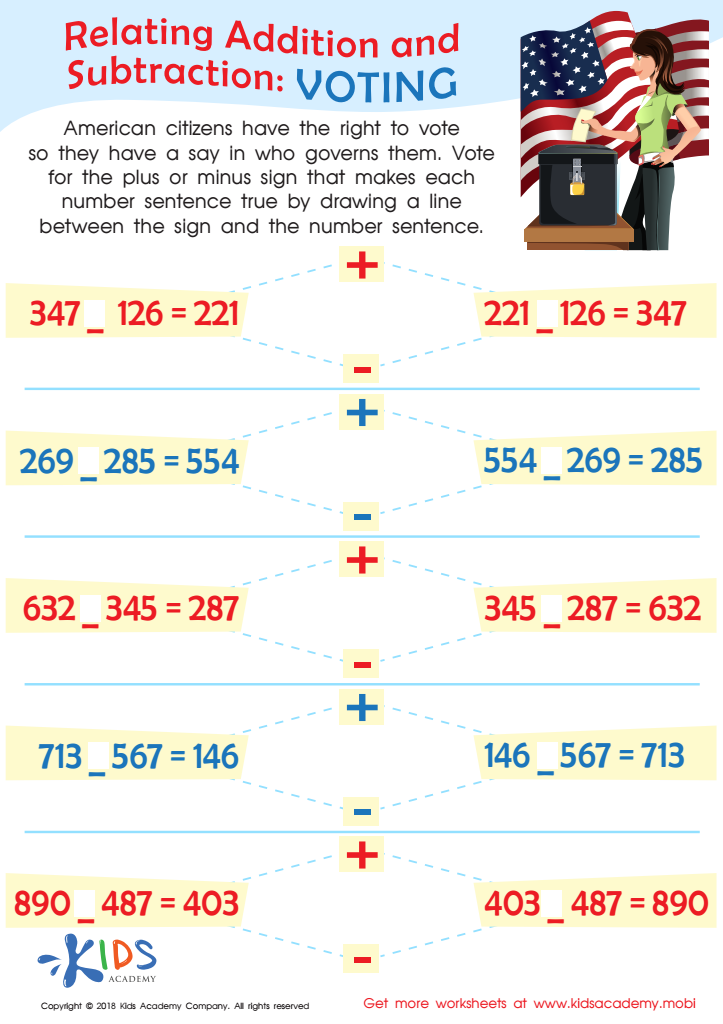

Voting Worksheet
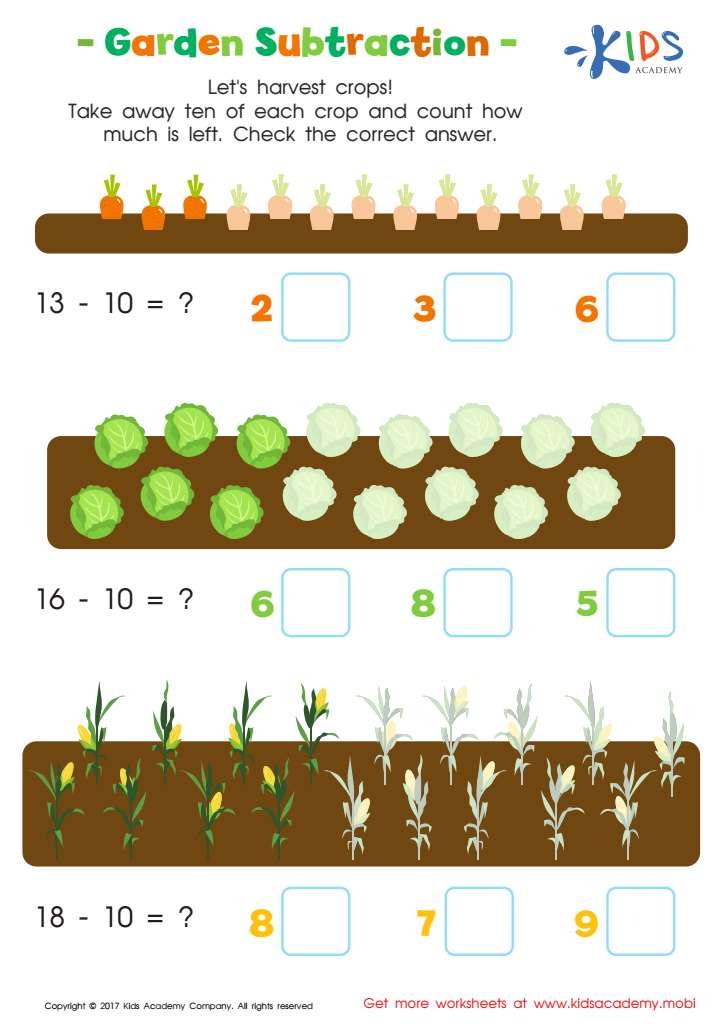

Garden Subtraction Worksheet
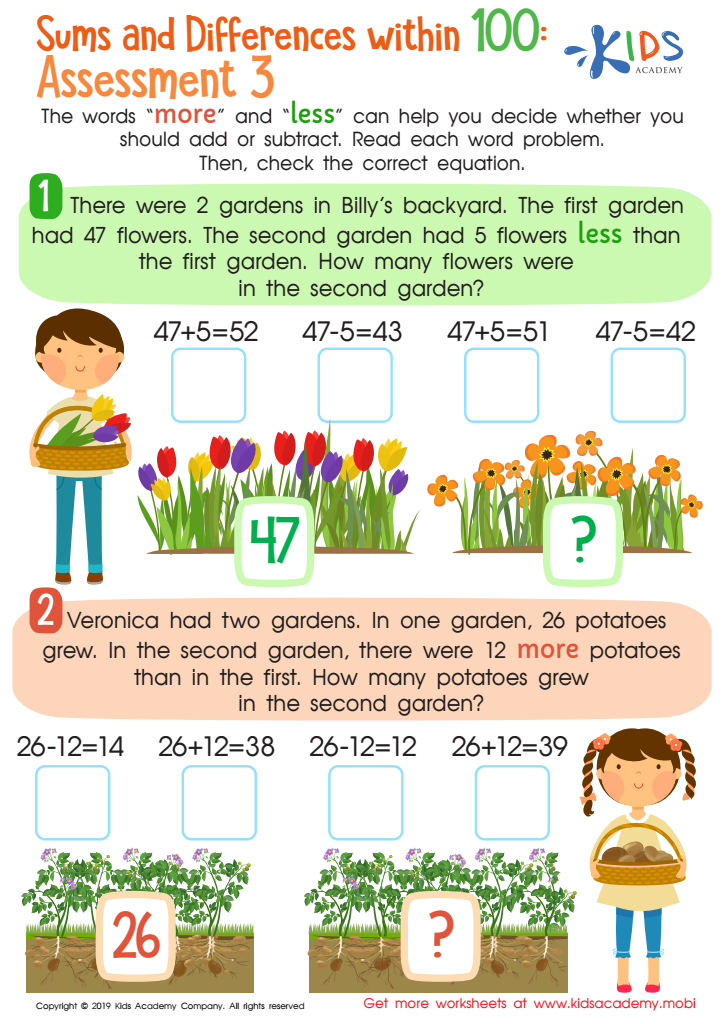

Sums and Differences Within 1 - Assessment 1 Worksheet
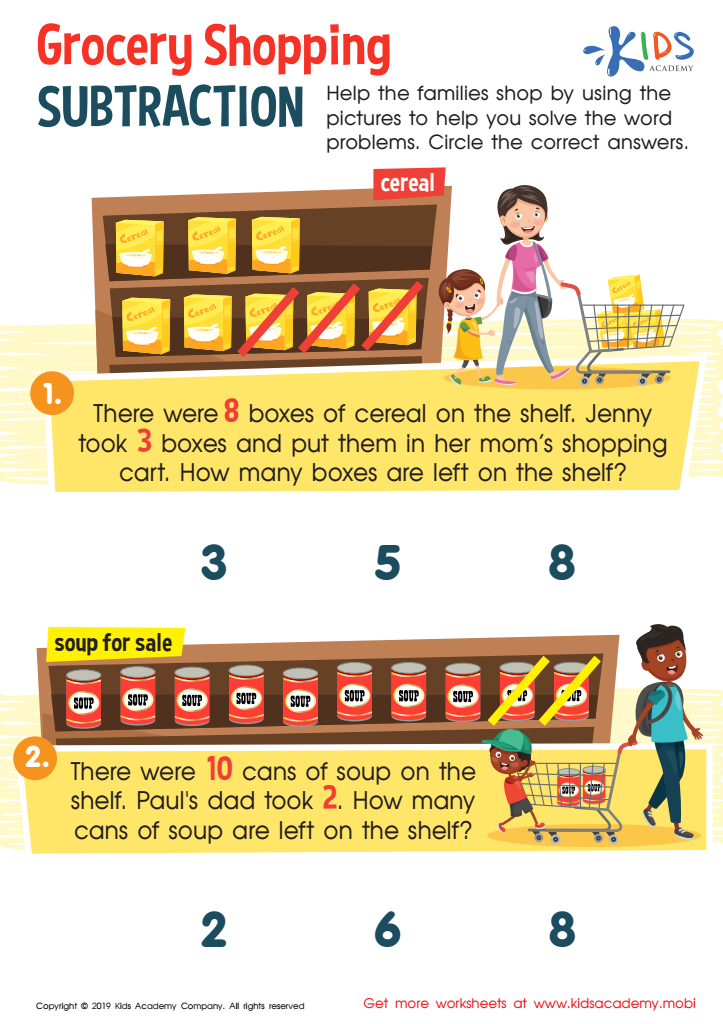

Grocery Shopping Subtraction Worksheet
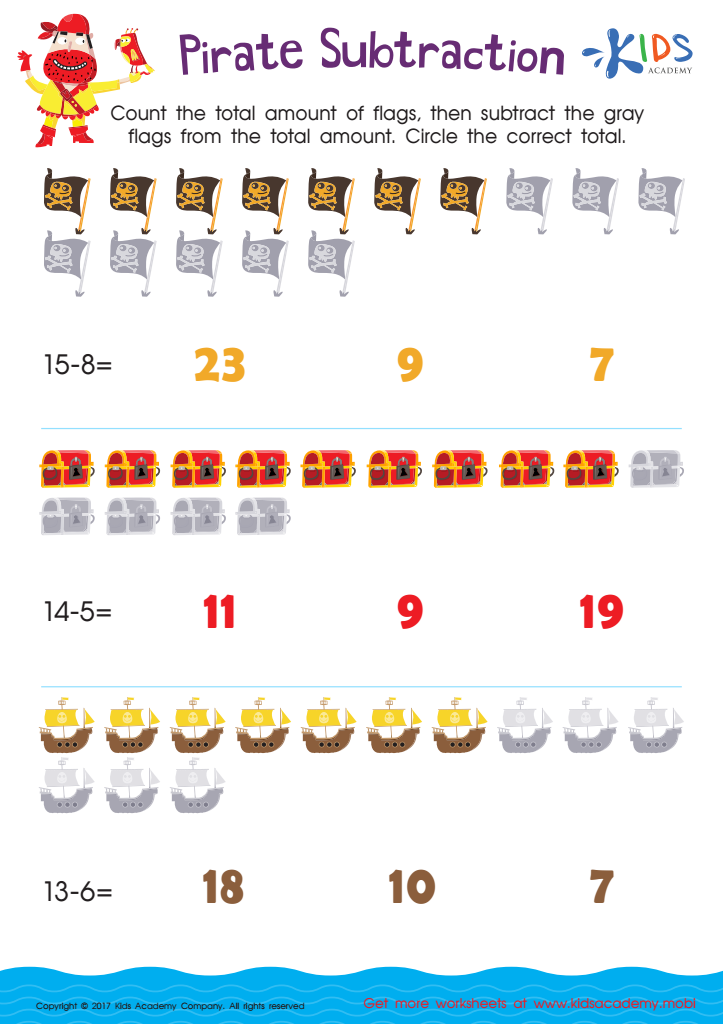

Pirate Subtraction Substraction Worksheet
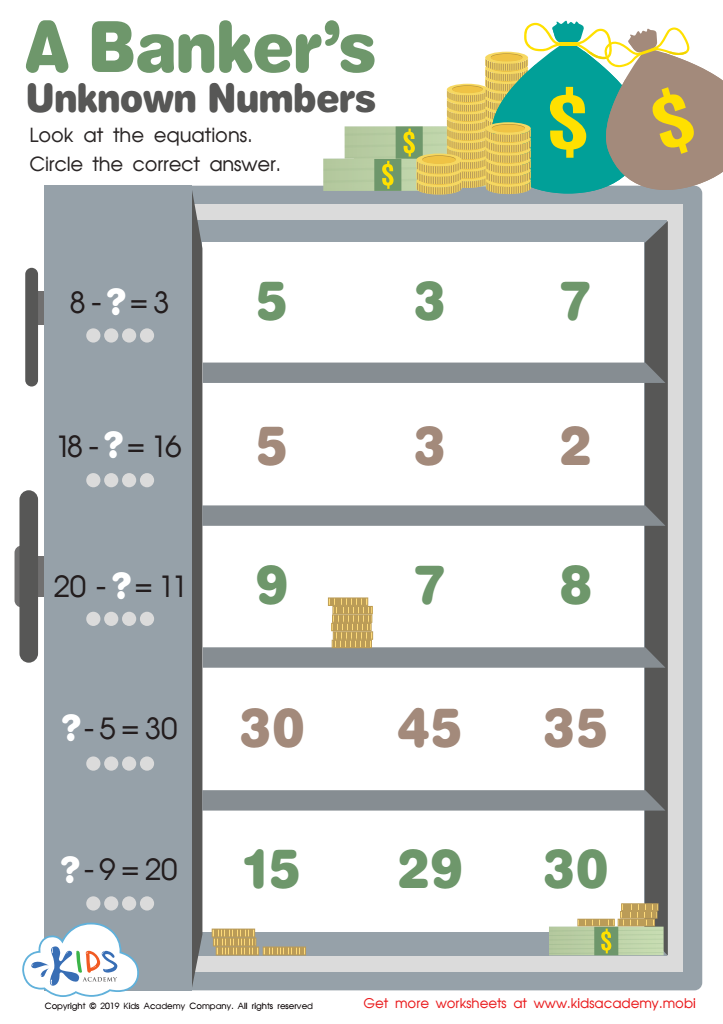

A Banker's Unknown Numbers Worksheet
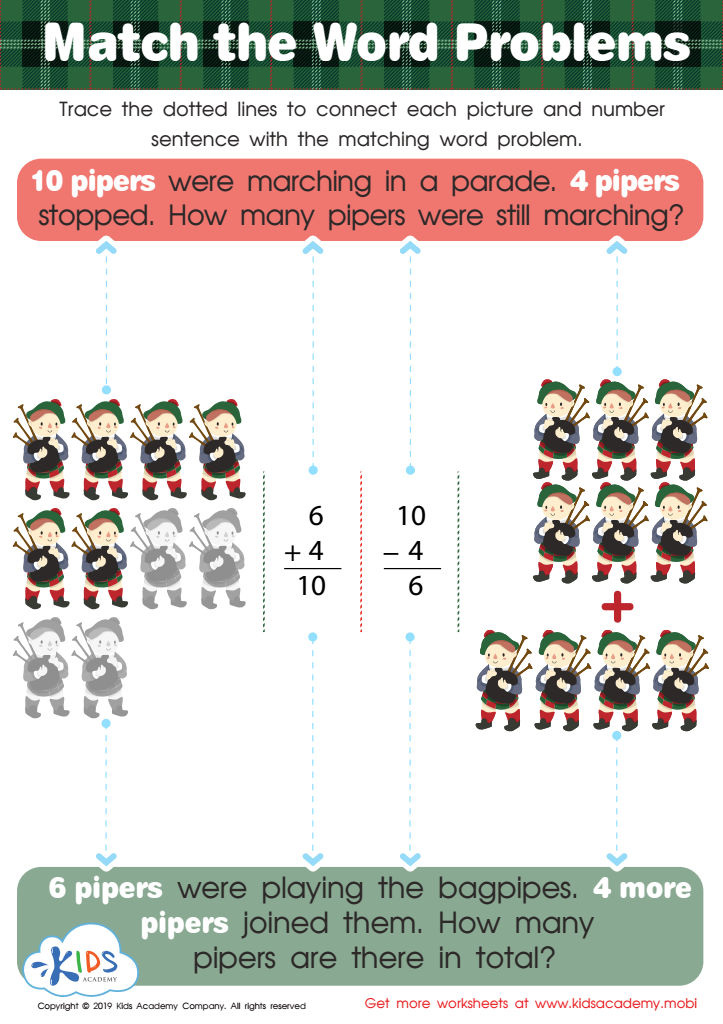

Match the Word Problems Worksheet
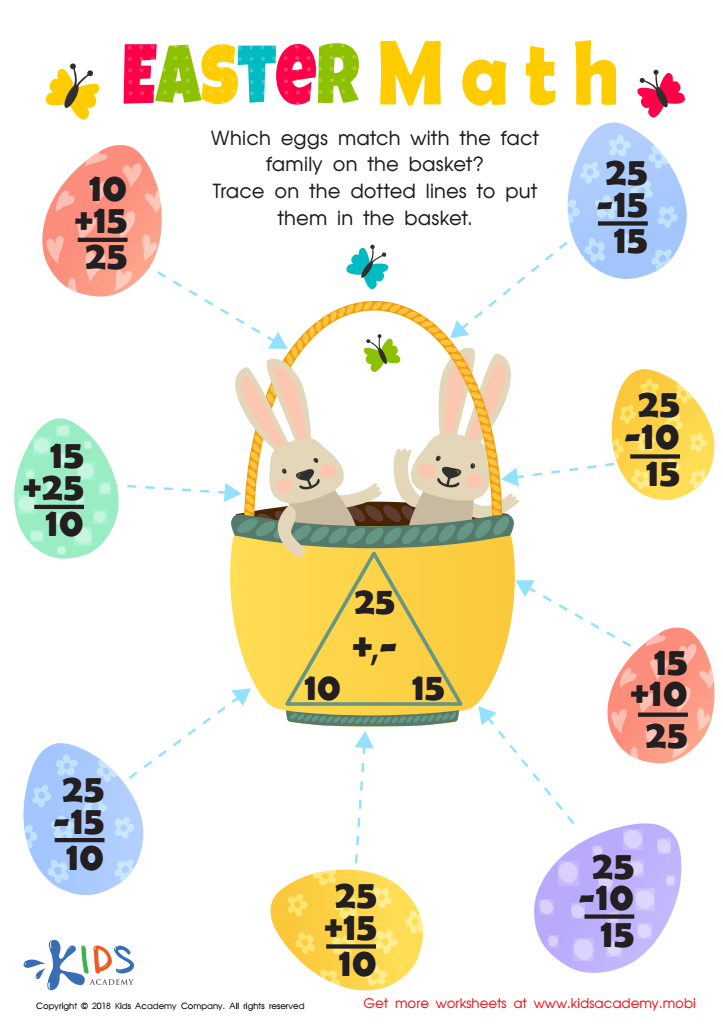

Fact Families: Easter Math Worksheet
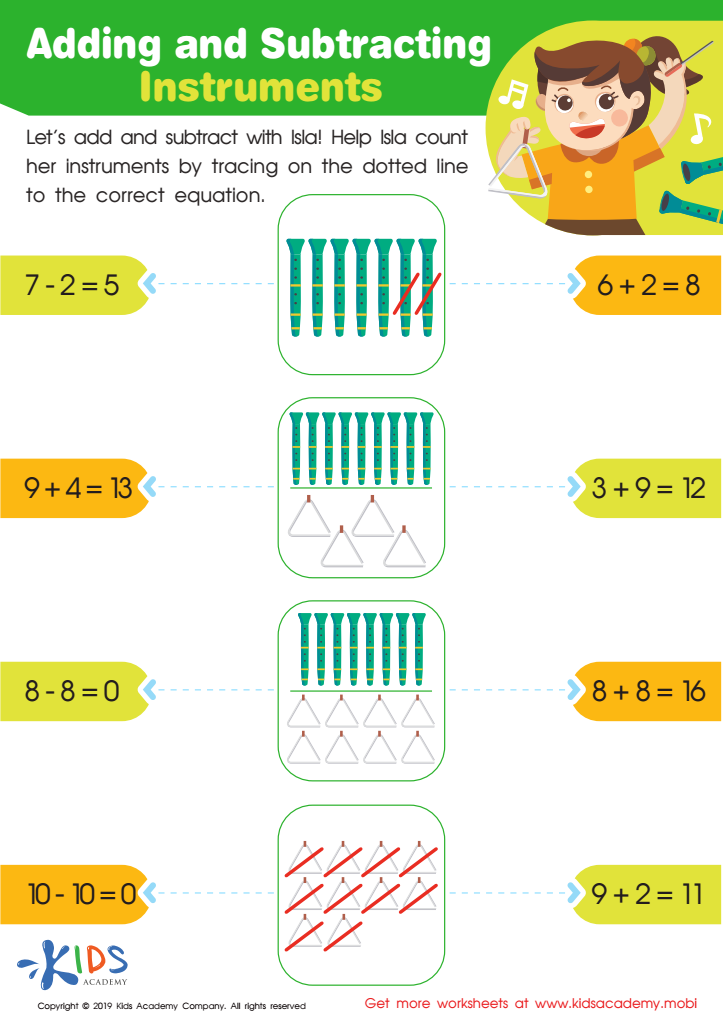

Adding and Subtracting: Instruments Worksheet
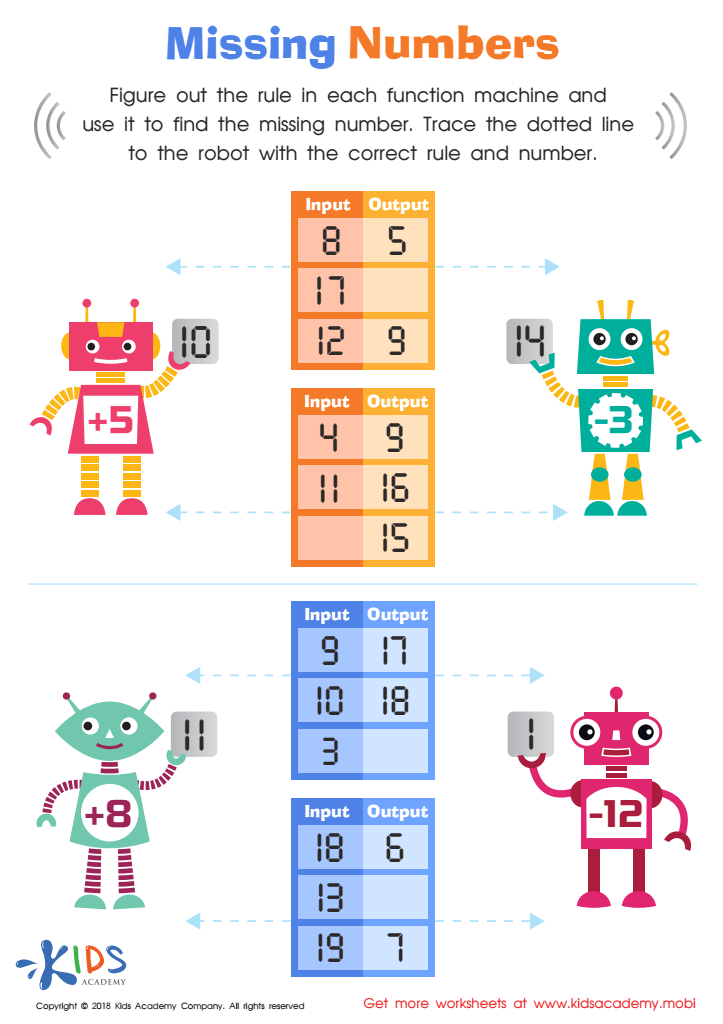

Missing Numbers Worksheet
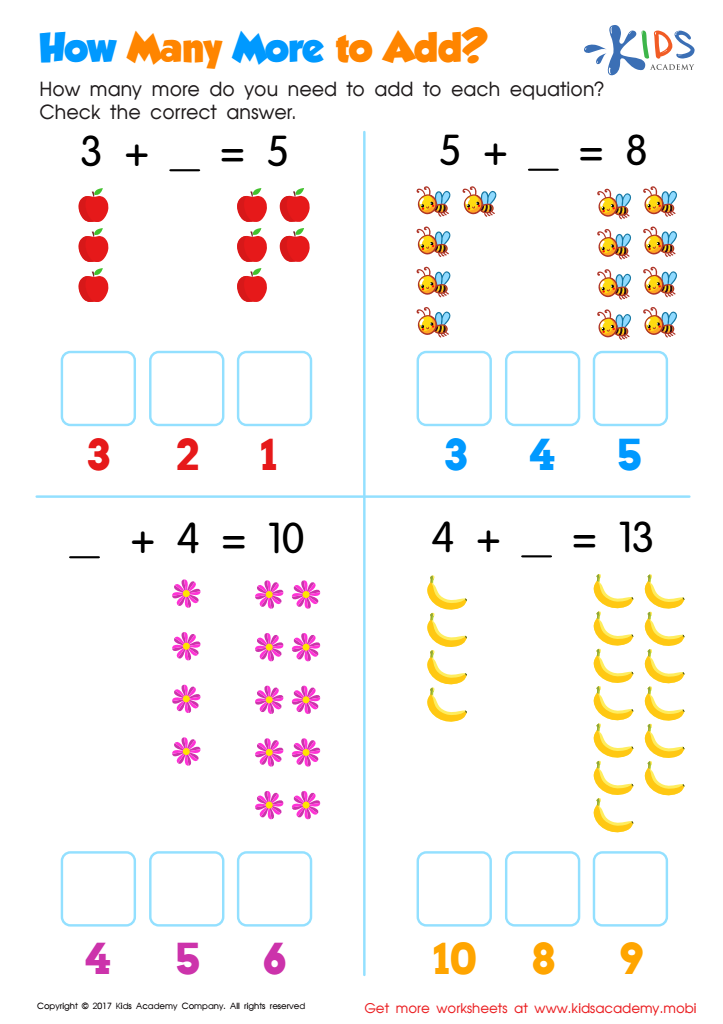

How Many More to Add Worksheet
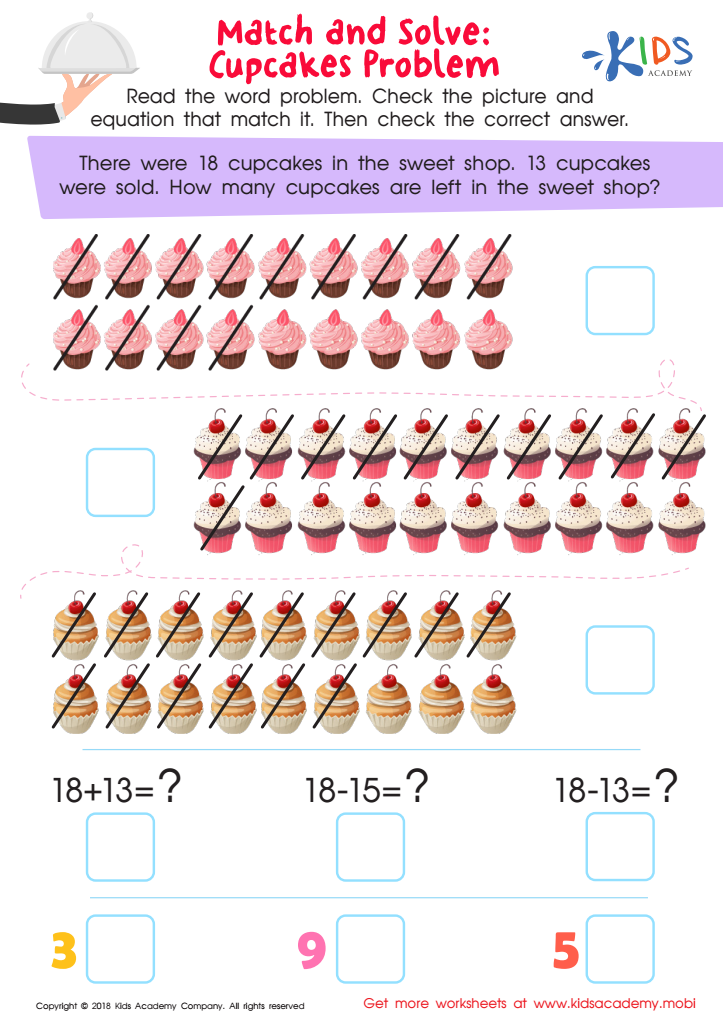

Match and Solve: Cupcakes Problem Worksheet
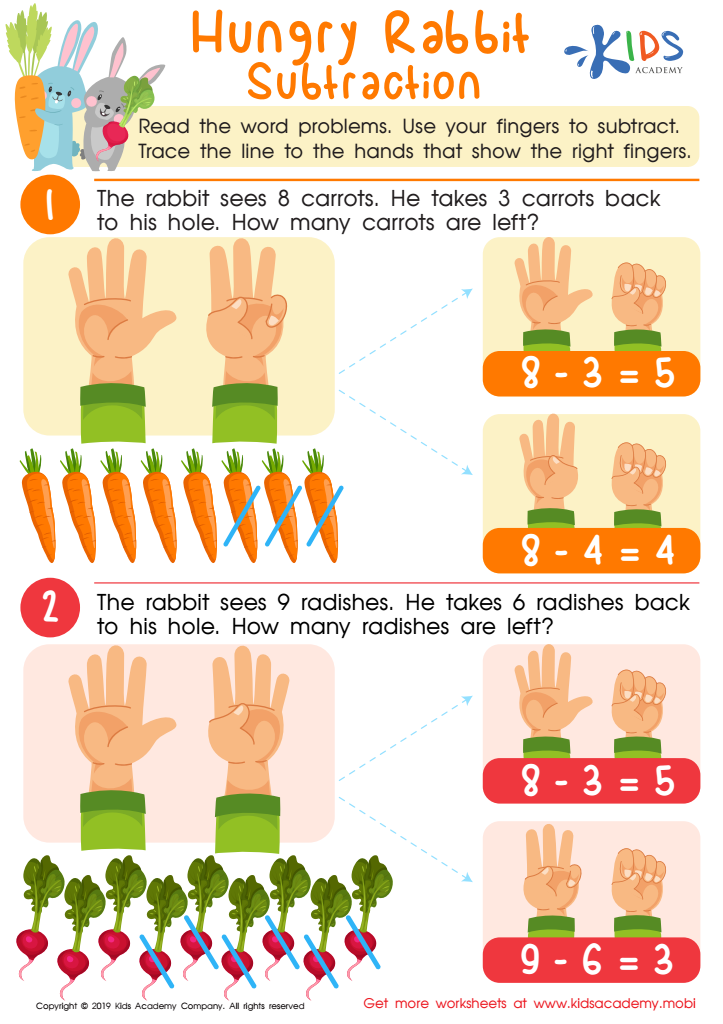

Hungry Rabbit Subtraction Worksheet
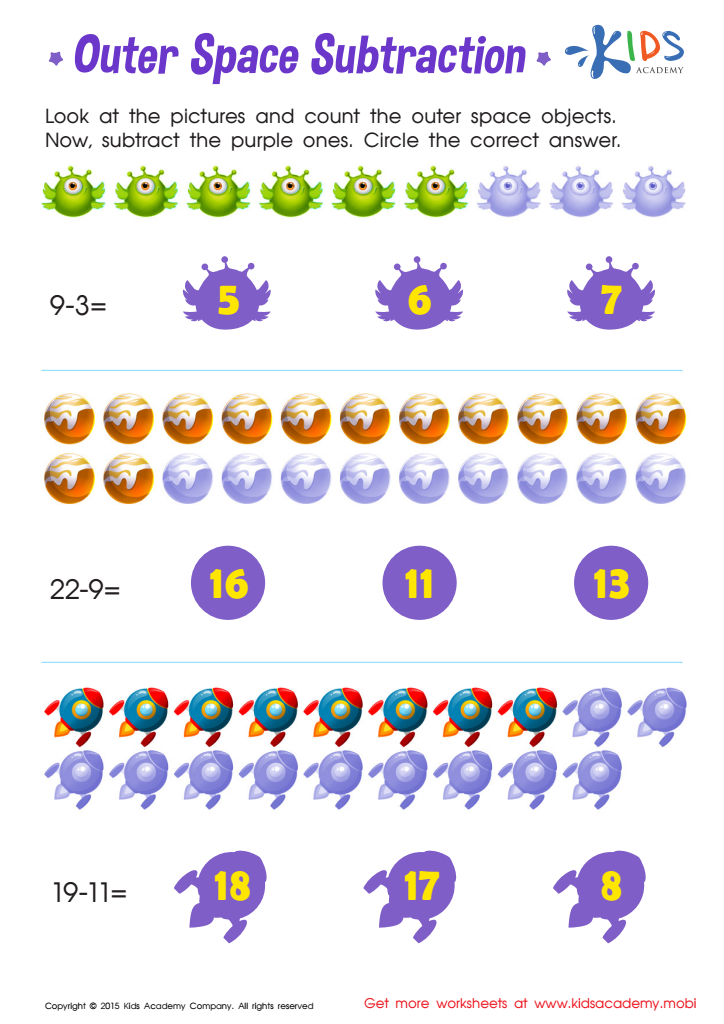

Outer Space Substraction Worksheet
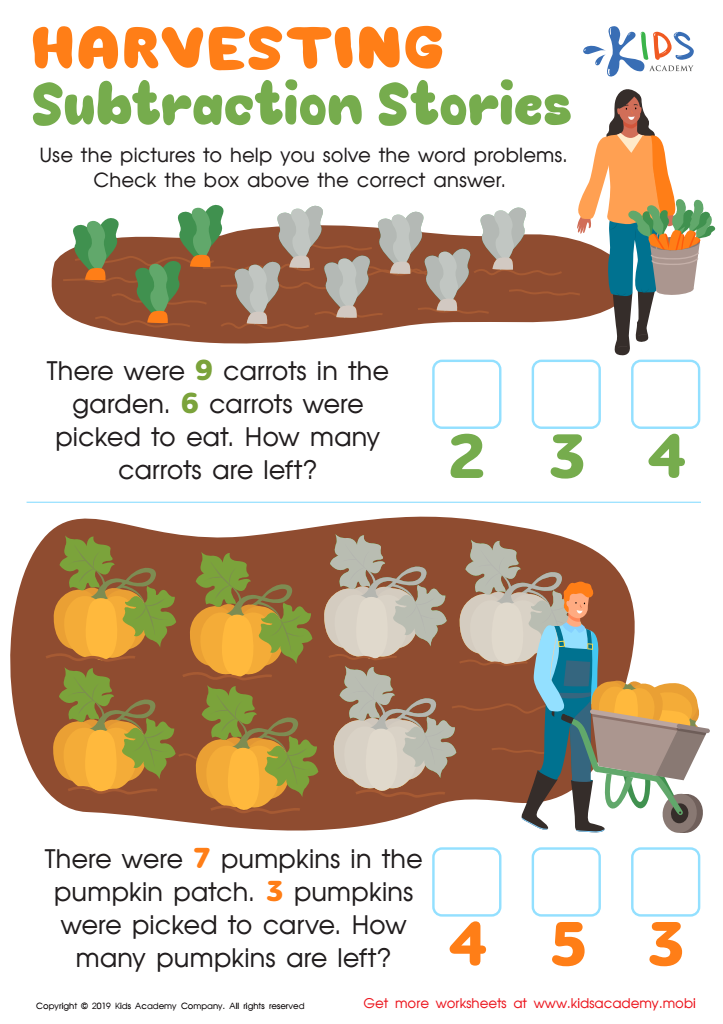

Harvesting Subtraction Stories Worksheet
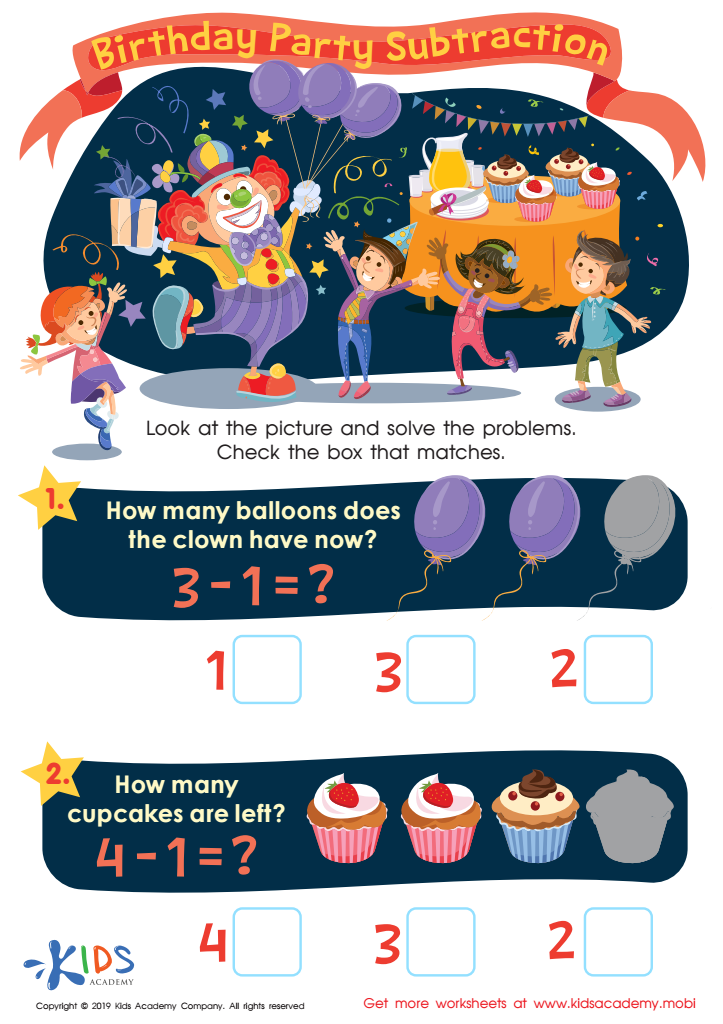

Birthday Party Subtraction Worksheet
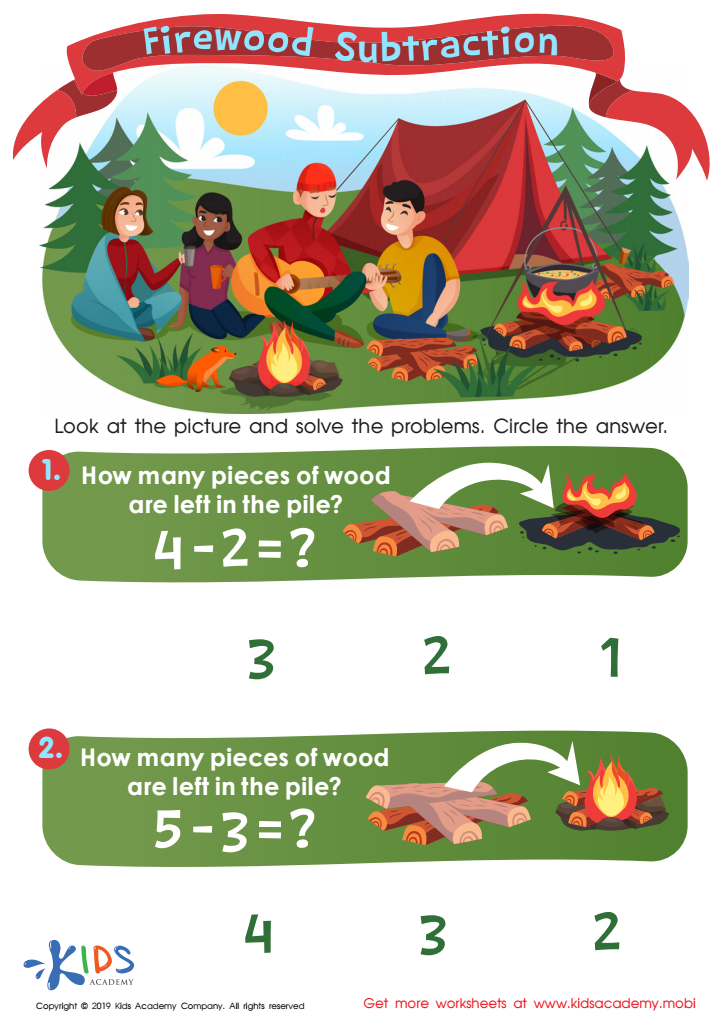

Firewood Subtraction Worksheet
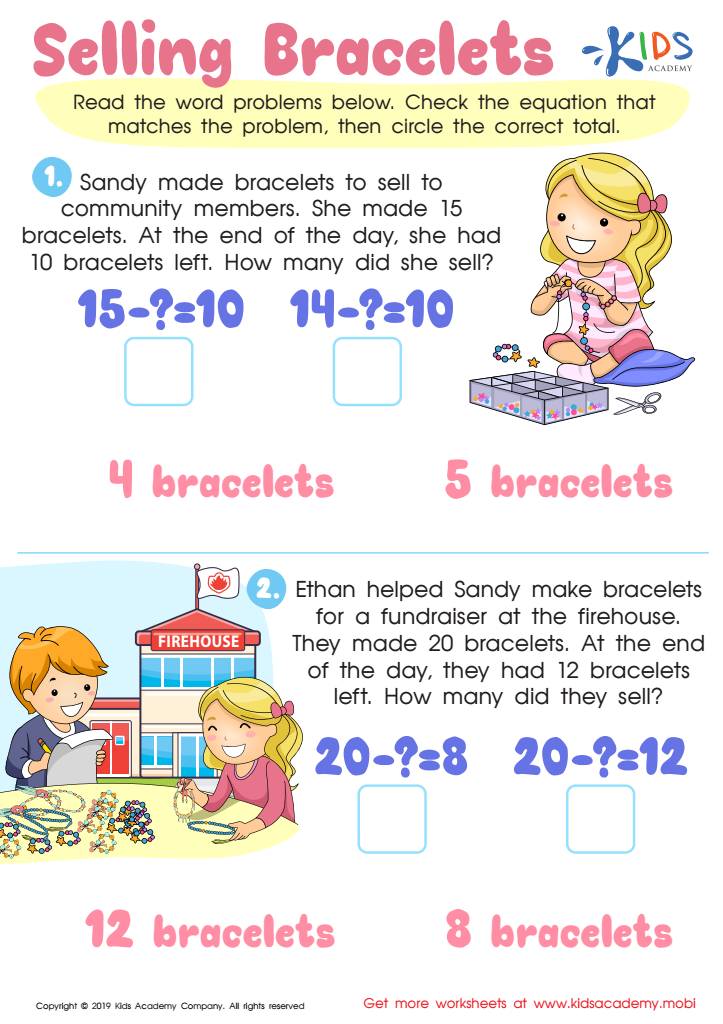

Selling the Bracelets Worksheet
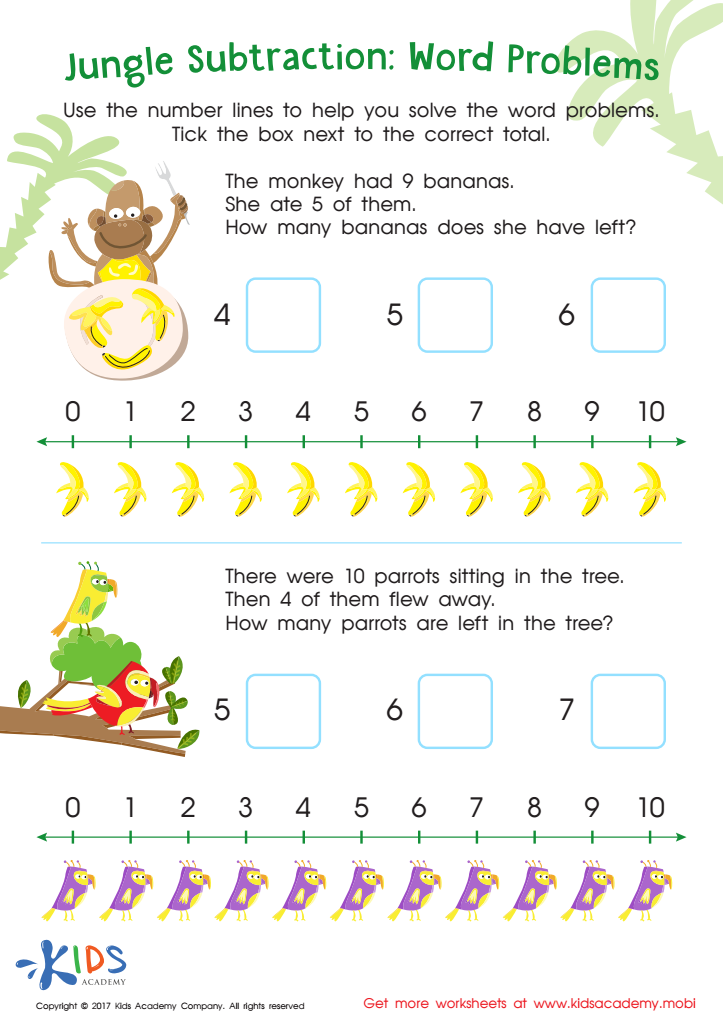

Jungle Subtraction Word Problems Substraction Worksheet
Parents and teachers should prioritize Problem-Solving Skills in subtraction for children aged 4-8 because these foundational skills enhance critical thinking and cognitive development. During early childhood, children are naturally curious and open to learning; when they engage in problem-solving activities related to subtraction, they not only reinforce their understanding of numbers, but also learn to approach challenges systematically.
Developing problem-solving skills in subtraction helps children understand basic concepts such as “more” and “less,” fostering number sense early on. This understanding is essential in everyday situations, where children need to make comparisons, manage quantities, and even handle money as they grow older. By tackling subtraction problems, children learn to analyze and break down tasks, building resilience and perseverance when faced with difficulties.
Moreover, these skills encourage collaboration and communication as children often work in pairs or groups, discussing strategies and solutions. This teamwork further enhances social skills, promoting a well-rounded development. Ultimately, fostering problem-solving skills in subtraction not only prepares young learners for more advanced mathematical concepts but also equips them with essential life skills needed for future academic and real-world challenges. Thus, their importance transcends mathematics and lays the groundwork for various aspects of learning and problem-solving in life.
 Assign to My Students
Assign to My Students




















